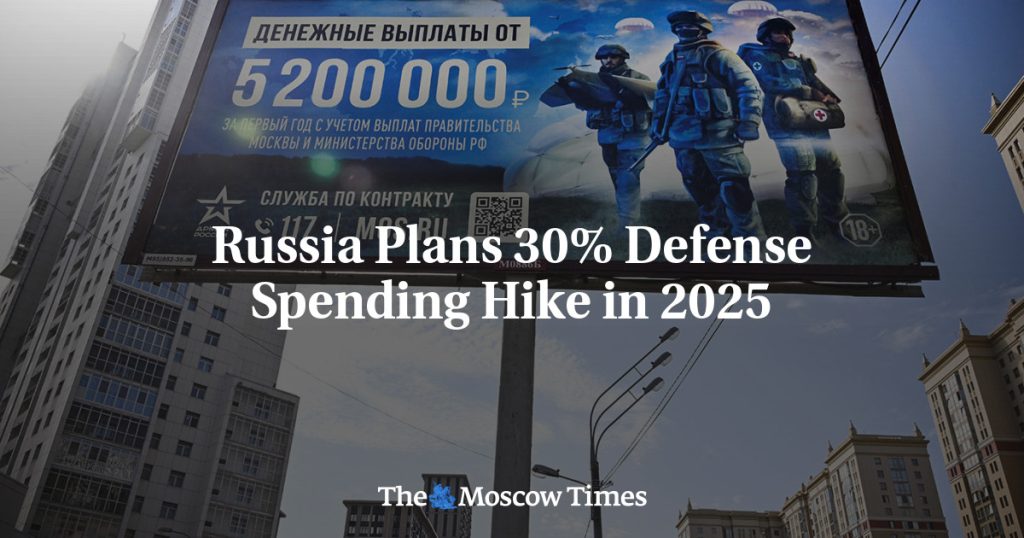Russia plans to increase defense spending by 30% next year to fund its ongoing war in Ukraine, with the defense budget reaching $145 billion in 2025. This escalation in military spending is part of Russia’s efforts to increase its military capabilities, as it has already elevated its defense spending to levels not seen since the Soviet era. The government is focusing on building up its forces by producing more missiles and drones for the conflict in Ukraine while also raising salaries for military personnel. Additionally, resources categorized under “domestic security” and top-secret expenditures are not included in the defense budget, indicating a higher actual spending on defense and security than the published figures suggest.
Before presenting the draft budget to the State Duma, the Russian government highlighted an increase in investment and social welfare alongside the surge in military spending. Finance Minister Anton Siluanov emphasized the importance of social support for citizens as a top priority in the budget, followed by defense and security spending. This includes resources for Russia’s special military operation in Ukraine and support for families of those participating in the conflict. However, the substantial focus on military expenditures appears to have displaced spending in other sectors of the economy, with national defense receiving more than twice the allocation of social spending.
The significant increase in defense and security spending will constitute around 40% of Russia’s total government expenditures in 2025, totaling $440 billion. This substantial allocation towards military activities reflects Russia’s prioritization of its military capabilities and strategic interests, particularly in the context of the ongoing conflict in Ukraine. The surge in military spending indicates a shift in Russia’s budget priorities towards strengthening its military forces and security apparatus, potentially at the expense of other sectors of the economy.
Amidst the escalating military spending, Russia faces criticism and challenges, particularly in the realm of independent journalism. The Moscow Times, a reputable news outlet, has been designated as an “undesirable” organization by Russia’s Prosecutor General’s Office, jeopardizing the work of its journalists and labeling the outlet as a “foreign agent.” Despite these challenges, The Moscow Times remains committed to providing accurate and unbiased reporting on Russia. The authorities’ attempts to silence independent journalism highlight the importance of supporting media outlets that uphold principles of open and independent reporting, in the face of repression and censorship.
The allocation of significant resources towards defense and security in Russia’s draft budget for 2025 reflects the government’s priorities in bolstering its military capabilities amid ongoing military operations in Ukraine. The increase in defense spending, combined with the crowding out effect on other sectors of the economy, underscores the government’s focus on military preparedness and national security. As Russia continues to invest heavily in its military forces, questions arise regarding the impact of such prioritization on social welfare, economic development, and overall budgetary allocations within the country.
In conclusion, Russia’s substantial increase in defense and security spending is a clear indicator of the government’s commitment to strengthening its military capabilities and pursuing its strategic interests, particularly in the context of the conflict in Ukraine. While the prioritization of military expenditures may raise concerns about the potential impact on other sectors of the economy, the allocation of significant resources towards defense reflects Russia’s ongoing military operations and security imperatives. As Russia faces challenges in the realm of independent journalism and media freedom, supporting outlets like The Moscow Times becomes crucial in upholding principles of open and unbiased reporting in the face of censorship and repression.


